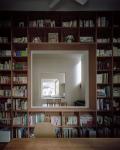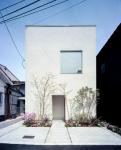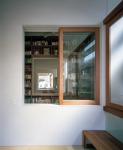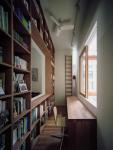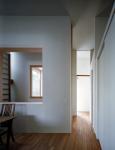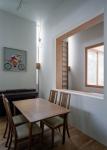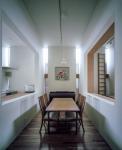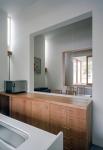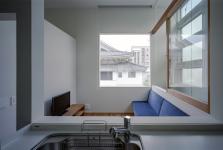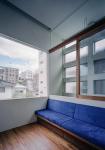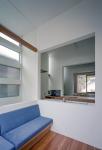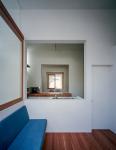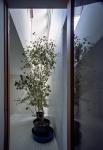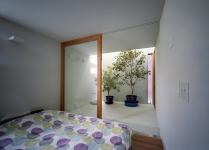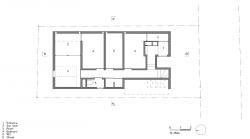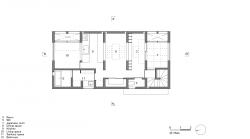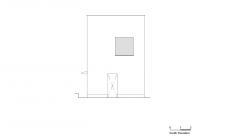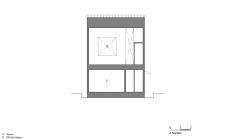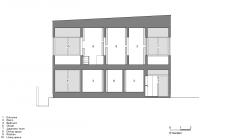This residence sits on a long, narrow property in urban Osaka that will likely become increasingly hemmed in by high-rise buildings in the future. The residents are a working couple, both of whom frequently work at home, and their children. They requested a design that would allow them space to work while still maintaining a sense of connection with the family. Over the course of several conversations about the best way to achieve this—by dividing the rooms, creating a single interconnected space, or finding a solution between these two extremes—we concluded that creating gradations of functionality and natural light was the ideal way to achieve the client’s goals.
The second floor is devoted to shared spaces including the living room, kitchen, dining room, home office, and Japanese-style room. These rooms are divided by walls, but in the center of each wall is an opening that offers views through the other rooms to the outside. This separate-but-connected design allows the residents to sense one another’s presence as well as the expansiveness of the space beyond the openings. The rooms can be used in various ways depending on who is using them and where the other family members are, so while we did envision basic patterns of use while designing the home, we expect the family to continue exploring their own best ways of living in the space over time. The first floor is occupied by bedrooms, which family members tend to use at different times of day. Both the children’s room and the master suite face onto sunrooms that bring in natural light and ventilation while maintaining privacy.
2018
2019
principle use : Residence
site Area : 112.02sqmt
Building Area : 62.11sqmt
Total Floor Area : 117.82sqmt
stories : 2
Structure : wood
FujiwaraMuro Architects
Shintaro Fujiwara, Yoshio Muro
Favorited 1 times

